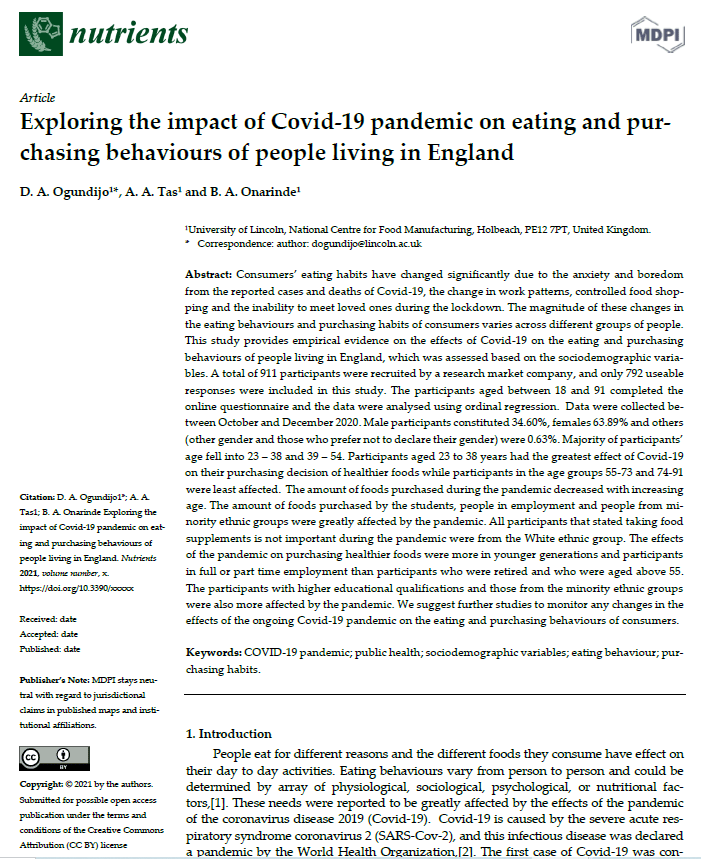Exploring the impact of Covid-19 pandemic on eating and purchasing behaviours of people living in England
Abstract: Consumers’ eating habits have changed significantly due to the anxiety and boredom from the reported cases and deaths of Covid-19, the change in work patterns, controlled food shopping and the inability to meet loved ones during the lockdown. The magnitude of these changes in the eating behaviours and purchasing habits of consumers varies across different groups of people. This study provides empirical evidence on the effects of Covid-19 on the eating and purchasing behaviours of people living in England, which was assessed based on the sociodemographic variables. A total of 911 participants were recruited by a research market company, and only 792 useable responses were included in this study. The participants aged between 18 and 91 completed the online questionnaire and the data were analysed using ordinal regression. Data were collected between October and December 2020. Male participants constituted 34.60%, females 63.89% and others (other gender and those who prefer not to declare their gender) were 0.63%. Majority of participants’ age fell into 23 – 38 and 39 – 54. Participants aged 23 to 38 years had the greatest effect of Covid-19 on their purchasing decision of healthier foods while participants in the age groups 55-73 and 74-91 were least affected. The amount of foods purchased during the pandemic decreased with increasing age. The amount of foods purchased by the students, people in employment and people from minority ethnic groups were greatly affected by the pandemic. All participants that stated taking food supplements is not important during the pandemic were from the White ethnic group. The effects of the pandemic on purchasing healthier foods were more in younger generations and participants in full or part time employment than participants who were retired and who were aged above 55. The participants with higher educational qualifications and those from the minority ethnic groups were also more affected by the pandemic. We suggest further studies to monitor any changes in the effects of the ongoing Covid-19 pandemic on the eating and purchasing behaviours of consumers.

